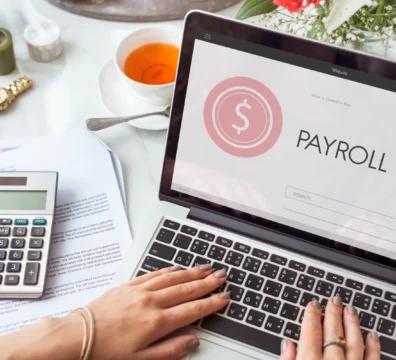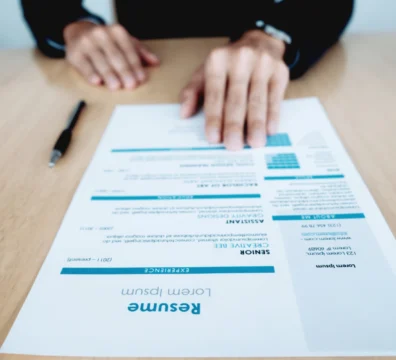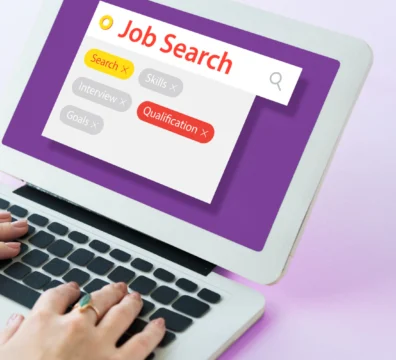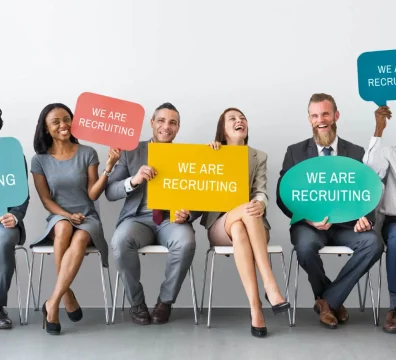Interviews for freshers or seasoned professionals can be a nerve-wracking experience. However complicated the process may be, it is a gateway to better opportunities for job seekers.
Now, to crack an interview, most people try to represent themselves professionally. In this process, you can unintentionally commit some common job interview mistakes. One way to avoid them is to stay prepared with an interview checklist beforehand.
In this article, we will share candidates’ 15 mistakes during an interview.
What is an Interview?
Before we delve into common job interview mistakes, let us understand what interviews are. An interview is a formal conversation between recruiters and job seekers, sharing every detail from both sides and ending up with a decision.
Recruiters conduct interviews to assess candidates’ abilities, experience, behaviour, and eligibility for the position. Whereas job seekers better understand the company culture, vision and mission, their expectations, and candidates’ roles and responsibilities.
Interviews can be conducted face-to-face, via video call, or by telephone. Some interview categories include structured, unstructured, situational, behavioural, etc. These can be arranged in individual interview formats, group formats, panel interviews, and computer-assisted interviews.
However, for all these situations, you must understand the common mistakes made by interviewees and avoid doing them to gain better opportunities.
The more you appear for interviews, the better you know what mistakes to rectify. Research says job seekers selected for three job interviews have a 51% possibility of getting hired.
15 Common Job Interview Mistakes to Avoid
Job seekers make different types of mistakes during an interview, from not dressing appropriately, arriving late, not carrying essential documents, and more. Most mistakes are unintentional, while a few are intentional, and candidates must overcome both.
Listed below are a few common job interview mistakes.
Not Being Punctual
It is good to appear 10-15 mins before the agreed interview time and not too early or late. It measures your punctuality on an interview day. However, if you’re running late due to unavoidable situations, always notify the staff or the interviewer through any means of communication, and apologise formally.
Skipping Preparation Before the Interview
One of the job interview mistakes to avoid is appearing for an interview without conducting proper research. You must understand the position you are applying for, the employer’s objective of hiring, their pain points, the company goal, etc. It will help you answer most employers’ questions that ensure you are fit for the company.
Dressing Inappropriately
It is one of the most common interview mistakes that candidates make while representing themselves as professionals. You can choose formal attire with little to no unnecessary accessories and polished shoes. You must look fresh and energetic and emit a positive vibe during the interview.
Interrupting the Interviewer When He/She is Speaking
Most candidates make such mistakes when they speak more than listen during an interview. You might miss out on the question that the recruiter actually wants to know—moreover, talking too much or interrupting interviewers results in disappointment.
Wrong Mindset
Recruiters hire staff for their needs, and they interview candidates to learn how they can improve the company’s pain points. However, most candidates make the mistake of saying what they will get from the job and not what they can give to the company. This creates a massive difference while recruiting the best candidate for job vacancies.
Unprepared for Behavioural Interview
You can commit behavioural interview mistakes only when unprepared for them. Recruiters can ask you real-life stories to understand what challenges you faced and how you resolved them.
You can use the STAR (Situation, Task accomplished, Actions taken, and Results achieved) method to reply to these questions giving the recruiters a clear vision of how to manage similar situations in future.
Not Answering Questions Appropriately.
One of the common job interview mistakes is not answering interviewers correctly. It can be either listening more carefully, speaking up more, providing more information, or answering basic questions. The best way to avoid it is by practising mock interviews and preparing the common questions beforehand.
Sharing Unnecessary Personal Details
Bonding with the recruiter with a shared interest or passion is essential. However, out of nervousness, job seekers speak of unnecessary personal details that switch off recruiters’ interest in you. Keep your answers relevant and concise instead of being too intimate with the interviewer.
Badmouthing Past Employer
Holding grudges against your previous boss is okay, but you must not show them to the present recruiter. There might be several reasons for leaving the past job, but you shouldn’t share them or badmouth your previous employer. It highlights your professional skills, loyalty, behaviour, and respect for others.
Improper Body Language
You must focus on body language while appearing for an interview. It includes your pose, way of sitting, speaking, tone, eye contact, etc. Research says nearly 67% of recruiters feel that eye contact is essential for making a good impression. Candidates must have a natural smile, maintain eye contact with the recruiter, avoid slouching, playing with hair, crossing arms, etc.
Not Carrying Your Necessary Documents
One of the common job interview mistakes is candidates failing to provide the necessary documents to prove their resumes. Interviewees must carry at least five resume prints, a portfolio of past work, qualification documents, a list of references, and identity proof.
Talking About Salary and Benefits Before the Recruiters
You should never talk about your salary and benefits at the beginning of the interview. It looks like you are working for money and are less interested in the job. However, you must stay prepared to answer any salary-related questions.
Interviewees can come up with an honest answer about their salary expectations after researching their positions and comparing them with other companies.
Failing to Mention Weaknesses and Strengths
Out of hundreds of common job interview mistakes, failing to understand your strengths and weaknesses comes at the top. While trying to impress recruiters, some neglect their weaknesses and oversell their strengths, while others are unaware of these points.
Not Asking Questions
Most candidates prefer not to ask questions to their interviewers, which shows you are less interested in the post. You can prepare a set of questions, like when to expect a call, what the career path looks like, what are the next steps, etc. However, don’t ask for something that’s already answered or irrelevant to the post.
Not Sending Follow-Up Emails
One common interviewing mistake in HRM is not to send follow-up emails at the end of the interview. You must send your interviewer a customised “Thank You” note on the same day of the interview and leave your feedback.
How Does 6 Pence Help You Get Interviews?
Interviews are a must while selecting and hiring talents in organisations. It ensures the candidates are qualified for the position and are not bluffing about their qualifications and experience. When interviewing as a fresher or a professional, you must remember common job interview mistakes. By avoiding them, you can raise your chances of getting hired by a company.
With 6 Pence, you can submit your resumes for multiple positions. We work with global and local businesses in Oman, Iraq, Bahrain, and Dubai and act as a liaison between recruiters and candidates. We match the candidate’s profile with the company’s requirements and select you as an ideal fit. You can now apply for well-paying jobs at reputed organisations with us.
Drop your CV by visiting our careers page!
Also Read: Why Employee Training and Development is Must for Organisations?
Frequently Asked Questions
What are some common job interview mistakes to avoid?
Dressing inappropriately, slouching during interviews, poor body language, speaking more than needed, and listening little are some common job interview mistakes to avoid.
How can I avoid making common job interview mistakes?
You can avoid making common job interview mistakes by practising mock interviews, looking up basic instructions, and grooming yourself before appearing for real interviews.
How can I recover from a job interview mistake?
You can always learn from your mistakes in the interview and use your follow-up mail to apologise to the interviewers. Constant practice and appearing for mock interviews can help you recover from making common mistakes.
What are the consequences of job interview mistakes?
Some recruiters understand the stress related to job interviews and overlook your mistakes and hire you depending on your talents. However, you can always apologise for any intentional or unintentional errors. In the worst scenario, they can reject you, but you will have the opportunity to fix them in the following interview.




































































































